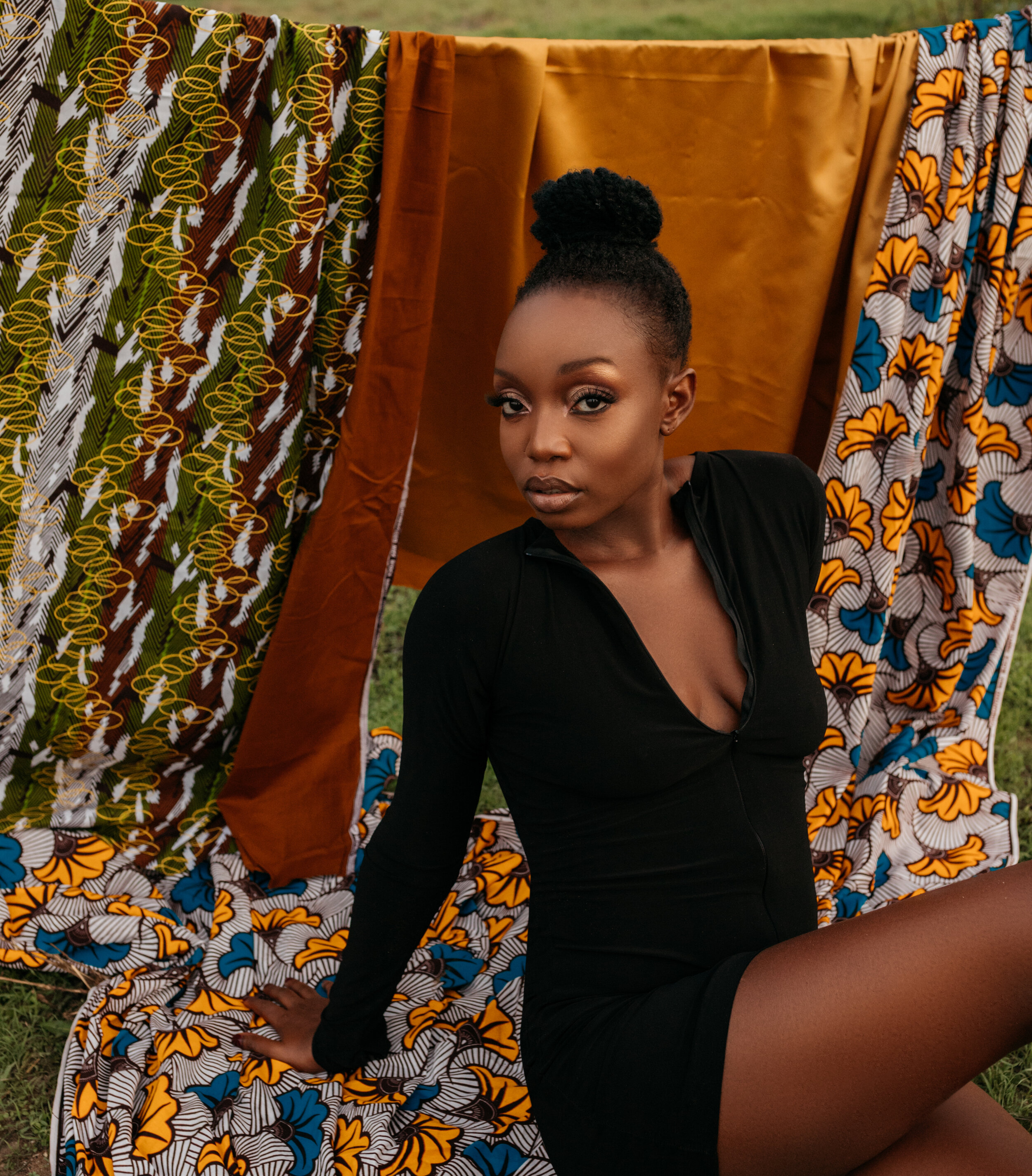
I S S U E I I
Decolonization Be Like
LETTER FROM THE EDITOR @dOSSEVIAI Knew This Day Would Come
If I were to tell my younger self that one day she’d be the editor-in-chief of a PanAfrican Magazine that celebrates the magic and melanin of Blackness around the world, she’d probably say, “that sounds about right.” My inner child has always known that I can do whatever I set my mind to. This sense of infinite abundance has been an innate knowledge, but also a privilege, due to the fact that even though I grew up in France and America, being the child of immigrants of West Africa provided me with a direct connection to my African lineage and heritage. “You can take the child out of Africa, but you can’t take Africa out of the child...”
Growing up, my mother often reminded my siblings and me that we are descendants of the Dahomey princesses of Benin, and my father shared stories of the complex and rich cultural traditions that run through our family’s West African bloodline. This knowledge, instilled within me during my most formative years, helped me better know and understand myself, even if I spent most of my life living outside of the African continent. Even today, I’m looking forward to finally seeing my heritage represented onscreen when Viola Davis and Lupita N’yongo star in The Woman King, a story of my ancestral Queendom. The Dahomey women warriors adamantly fought off French colonizers and enslavers. Their rebellious and revolutionary spirit courses through us generationally. It’s been a long time coming, but I knew this day would come. My younger self knew that even if I didn’t often see myself represented within the pages of Seventeen Magazine, or as the lead star of a Disney Channel movie, Black people could and would create the visibility, platforms, and awareness that we were yearning for. Our existence is in itself such a creation.
Even though my family and I did face discrimination and racism in certain ignorant spaces of suburbia (I lived in Plano, Texas and Snellville, Georgia between the ages of four and fifteen years old), those neocolonial mindsets and systems weren’t enough to erase my innate knowledge of my divine power as an African woman. Now that’s not to say I was not colonized, or that I am now fully decolonized. Decolonization is a journey, a constant decision to question everything, a path to remembrance. I could spend time detailing ways in which my younger self did fall into traps of colonial ideologies, such as in middle school when I’d subconsciously choose photo filters that lightened my skin, or when I felt embarrassed to wear my hair out in a fro because mostly everyone around me had silky, straight hair. But I’m now at the part of my decolonization journey where I’m falling in love with how much I’ve broken free of such systems. How much I’ve embraced my awakening. How much I honor my dark skin. How much I’m re-rooting myself in who I’ve always been.
Returning to West Africa in June 2018 served as a major catalyst for this remembrance. I now understand that I needed to go through those moments in America, where I almost forgot just how infinite our existence is. I had to almost forget in order to rejoice once I fully remembered. Shoutout to my ancestors for activating this remembrance. But I’ll keep that story for Issue III of MM Mag...
So once we remember who we inherently are, and once we become aware of the forces of healing, transmutation and ascension that exist within our melanated cosmic bodies, what are we to do? Personally, in addition to facilitating homegoing experiences to West Africa, I’ve been wanting to share this knowledge with others and offer spaces for Black artists, creators, or even those who don’t necessarily view themselves as such, to explore and showcase their own decolonization journeys, in whichever way feels right to them.
That’s what Issue II of MM Mag, Decolonization Be Like, is all about. These twelve artists, writers, performers, activists, graphic designers, painters, revolutionaries, educators, poets, historians and thought leaders come from all over the world. You’re about to dive into work made by creators from Nigeria, Togo, England, California, New York, D.C., and more. It was an honor receiving these brilliant submissions, which all touch on decolonization from a unique, striking, sometimes painful and always eye-opening perspective. May this issue of MM Mag inspire you to celebrate your own path to decolonization — and in the end, remember that we hold the key, and we are the locksmith. With every breath we take, with every intention we set to keep creating, keep remembering, keep sharing, and keep thriving, we emancipate ourselves, and we get back in touch with the inextinguishable flame of freedom that lives within. Thank you for being here. Enjoy Decolonization Be Like!
Love,
Dossé-Via
Black on Black Crime
When did you decide to favor and submit to the mental captivity of eurocentrism?


